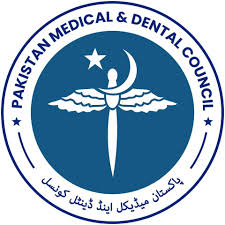Factors Affecting Tuberculosis Treatment Adherence among Newly Diagnosed Patients Attending TB Clinic at Tertiary Care Hospital, Lahore
DOI:
https://doi.org/10.37018/JFJMU/TAS/1200Keywords:
Tuberculosis, Medication Adherence, Morisky Medication Assessment Scale, FactorsAbstract
Background: Pakistan ranks fifth among high tuberculosis (TB) burden countries. Despite Directly Observed Treatment Short Course Strategy (DOTS) implementation, adherence is still poor and Pakistan stood fourth in multi-drug resistant (MDR-TB) cases. This study was conducted to assess tuberculosis treatment adherence among newly diagnosed pulmonary TB patients at TB clinic of tertiary care hospital, Lahore, and to study factors affecting it.
Patients and methods: Between May 2021 and February 2022, cross-sectional study was conducted at outdoor based TB Clinic, Services Hospital, Lahore, interviewing 732 active pulmonary TB patients aged 18 to 65 receiving Anti Tuberculosis Treatment (ATT) for at least two months. Adherence was studied incorporating Morisky Medication Assessment Scale (MMAS) and World Health Organization multi-dimensional adherence model (WHO-MAM) in close-ended questionnaire, considering socio-demographic, patient, health system, and therapy-related factors. Those scoring < 6 on MMAS were categorized low adherents. SPSS Version 25 analysed data. Chi-square test and binary logistic regression explored adherence associations, with p<0.05 considered significant.
Results: Out of 732 patients,350 (47.8%) males and 382 (52.2%) had mean age of 37.41±13.3 and 38.80±14.08 years respectively, with family income of 22062.86±19915.34 vs 23900.52±22153.02 rupees, knowledge score of 4.62±1.56 vs 4.68±1.55 and MMAS score was 6.57±1.21 vs 6.59±1.22 respectively. Low Adherence was in 64.2%.After adjusting, significant factors were age (AOR=12.378, 6.679-22.94), being unemployed (AOR=2.18, 0.253-0.815), low income (AR=2.678, 1.29-5.56), doctor’s availability (AOR=0.161, 0.067-0.383), non-co-operative staff (AR=6.902,3.197-14.889), distance travelled (AOR=12.056, 5.875-24.74), and adequate knowledge (AOR=3.583,1.699-7.557)
Conclusion: Two-thirds (64.2%) of TB Clinic attendees had low adherence. Unemployment, older age, low income, and inadequate knowledge had higher odds of low adherence. Similarly non-cooperative staff and distance from facility significant affected adherence.
Published
How to Cite
Issue
Section
License
The Journal of Fatima Jinnah Medical University follows the Attribution Creative Commons-Non commercial (CC BY-NC) license which allows the users to copy and redistribute the material in any medium or format, remix, transform and build upon the material. The users must give credit to the source and indicate, provide a link to the license, and indicate if changes were made. However, the CC By-NC license restricts the use of material for commercial purposes. For further details about the license please check the Creative Commons website. The editorial board of JFJMU strives hard for the authenticity and accuracy of the material published in the journal. However, findings and statements are views of the authors and do not necessarily represent views of the Editorial Board.

















